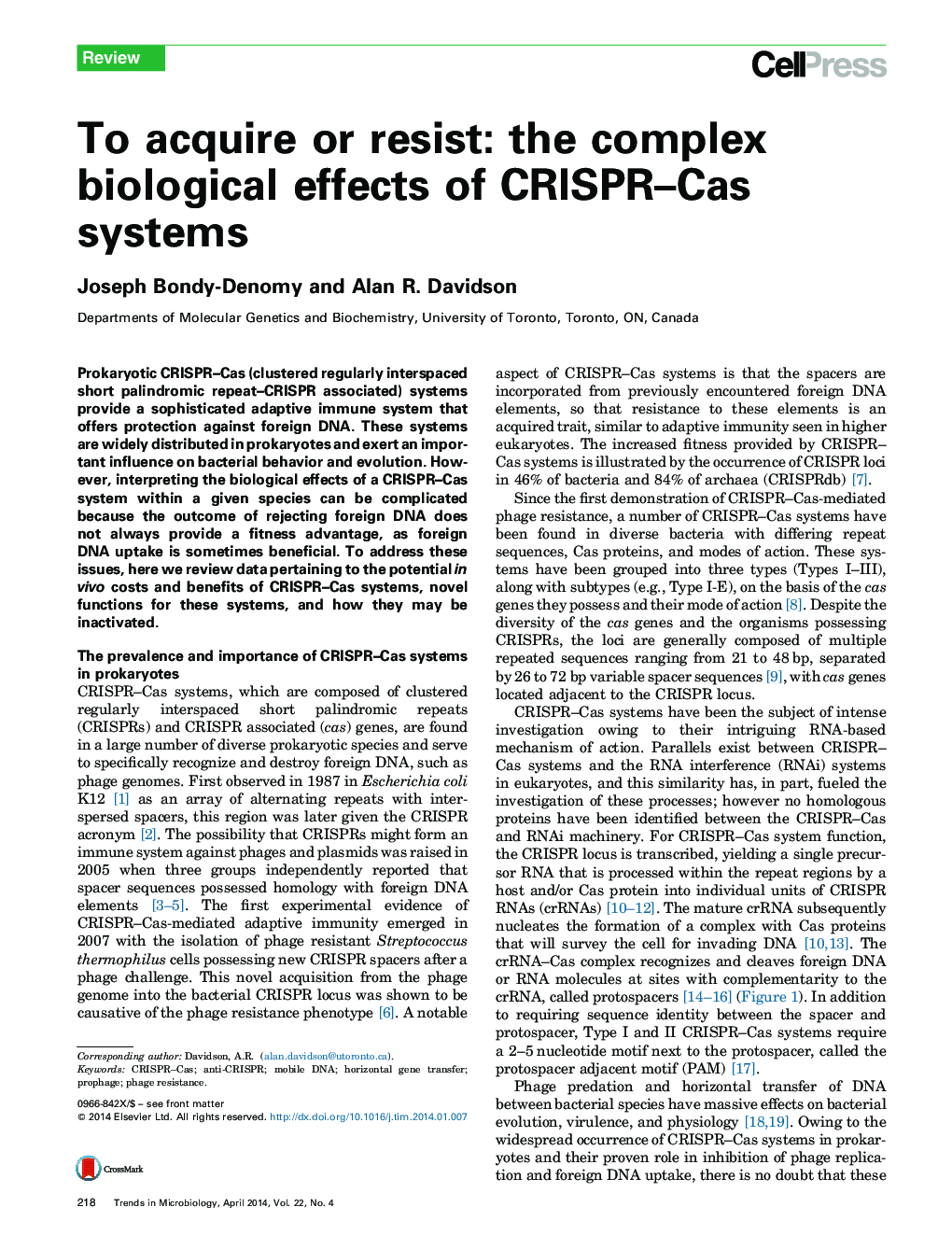| Article ID | Journal | Published Year | Pages | File Type |
|---|---|---|---|---|
| 3421772 | Trends in Microbiology | 2014 | 8 Pages |
•CRISPR-Cas systems are a widespread prokaryotic immune system targeting foreign DNA.•Some CRISPR-Cas systems are inactive or perform non-canonical functions.•Foreign DNA is beneficial to a species in some cases, thus favoring CRISPR-Cas inactivation.•Prediction of the biological effects of a given CRISPR-Cas system is difficult.
Prokaryotic CRISPR–Cas (clustered regularly interspaced short palindromic repeat–CRISPR associated) systems provide a sophisticated adaptive immune system that offers protection against foreign DNA. These systems are widely distributed in prokaryotes and exert an important influence on bacterial behavior and evolution. However, interpreting the biological effects of a CRISPR–Cas system within a given species can be complicated because the outcome of rejecting foreign DNA does not always provide a fitness advantage, as foreign DNA uptake is sometimes beneficial. To address these issues, here we review data pertaining to the potential in vivo costs and benefits of CRISPR–Cas systems, novel functions for these systems, and how they may be inactivated.
